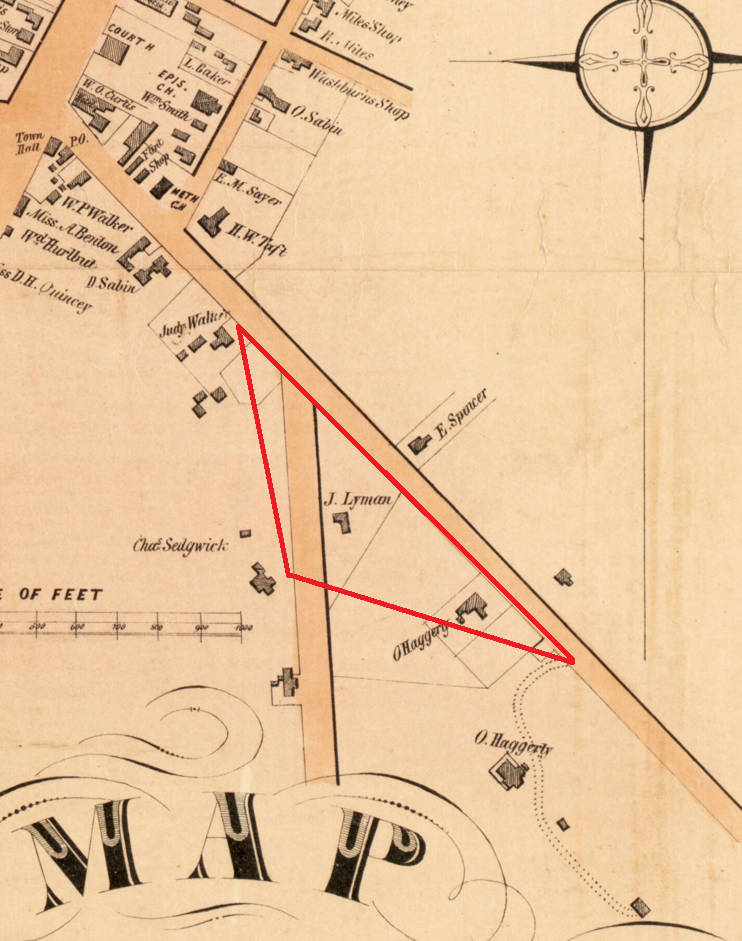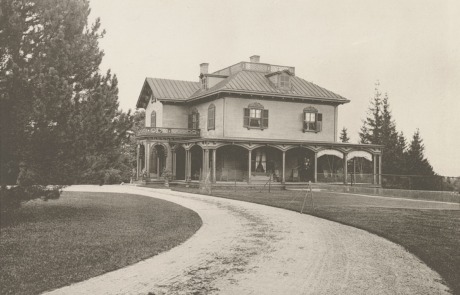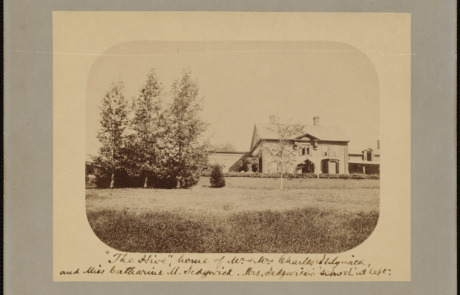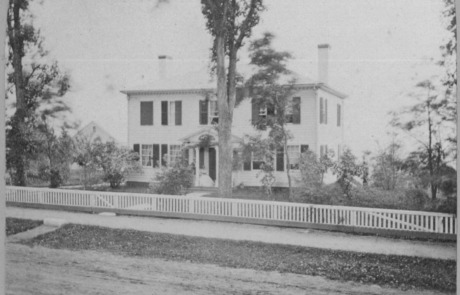The origins of Memorial Day began three years after the Civil War ended, on May 5, 1868, when an organization of Union veterans — the Grand Army of the Republic (GAR) — established Decoration Day as a time for the nation to decorate the graves of the war dead with flowers. In the heart of Lenox, three households were touched by the hand of sacrifice – those who paid “the last full measure of devotion,” as President Lincoln declared in his Gettysburg Address.

The story of Colonel Robert Gould Shaw, the commander of the 54th Massachusetts Black Regiment, is well known. He married Anna “Annie” Kneeland Haggerty on May 2, 1863 in New York City. The couple spent a brief honeymoon in Lenox at Vent Fort, the summer home of Annie’s parents, Odgen and Elizabeth Haggerty. A month later, the Mass. 54th was stationed at the abandoned Butler Plantation. Shaw wrote to his wife:
“I talked with some, whose children and grandchildren were sold then, and though they said that was a “weeping day,” they maintained that “Massa Butler was a good massa,” and they would give anything to see him again. When I told them I had known Miss Fanny, they looked very much pleased, and one named John wanted me to tell her I had seen him.”
Shaw would never get the chance to relay John’s message; he died leading the troops at The Battle of Fort Wagner, July 18, 1863.
Major William Dwight Sedgwick (1831-1862) was born in Lenox to Charles and Elizabeth Sedgwick. His father grew up in Stockbridge, moving to Lenox where he served as Clerk of Courts at the County Court House (the current Library building). Maj. Sedgwick was a lawyer practicing in St. Louis, MO. at the outbreak of war, but returned to Massachusetts to fight with his native statesmen. He was mortally wounded in the Battle of Antietam on September 17, 1862 but was able to write of his condition to his mother at The Hive in Lenox. Elizabeth arrived at the Deaner farm in Keedysville in time to witness her son’s passing on September 29.
His aunt, the novelist Catharine Maria Sedgwick, wrote to a friend:
“You perhaps have heard how manfully our dear Will behaved-how, when he lay on the hard, plowed ground (and he was lying there seven and a half hours), fatally wounded, he managed to get his little diary from his bosom and write, with fond expressions and earnest prayer, the simple great truth, ‘I have tried to do my duty’-the truth that takes the sting from death-the victory from the grave. So I am content that my beloved brother’s son should die.”
Captain William Walker Rockwell (1839-1863) was not from Lenox – in fact, he was born in Pittsfield, and the GAR Post #125 in Pittsfield would be named for him. But his father, Judge Julius Rockwell, also served in the County Court House in Lenox, and his grandmother, Mrs. William Perrin Walker, still lived at the house next door to The Hive, the house where his parents were married.
Capt. Rockwell’s uncle, Supreme Court Justice David Davis, was President Lincoln’s campaign manager. Lincoln and Judge Rockwell had served together in the U.S. House of Representatives in the 1840s. When Judge Davis heard the Capt. Rockwell had died of typhoid fever in Baton Rouge, he wrote to his brother-in-law from Washington DC:
“Did I say to you that the President wished me to convey to you his earnest sympathy He spoke of you very warmly. You are in some of your characteristics a good deal alike –Love to my dear Sister& your dear children –Be assured of my constant & earnest sympathy.”
In 2000, the National Moment of Remembrance was established to encourage all Americans to pause wherever they are at 3 p.m. local time on Memorial Day for a minute of silence to remember and honor those who have died in service to the nation.
Sources:
Map detail from Map of Lenox, 1854 at the Norman B. Leventhal Map Collection
Letter of Robert Gould Shaw excerpted from “Blue-Eyed Child of Fortune: The Civil War Letters of Colonel Robert Gould Shaw,” edited by Russell Duncan, 1999
Letter of Catharine Maria Sedgwick to Miss Russell excerpted from “Life and letters of Catharine M. Sedgwick,” edited by Mary E. Dewey, 1872
Letter from David Davis to Julius Rockwell, January 24, 1864 transcribed at David & Sarah Davis Family Correspondence at Illinois Wesleyan University




